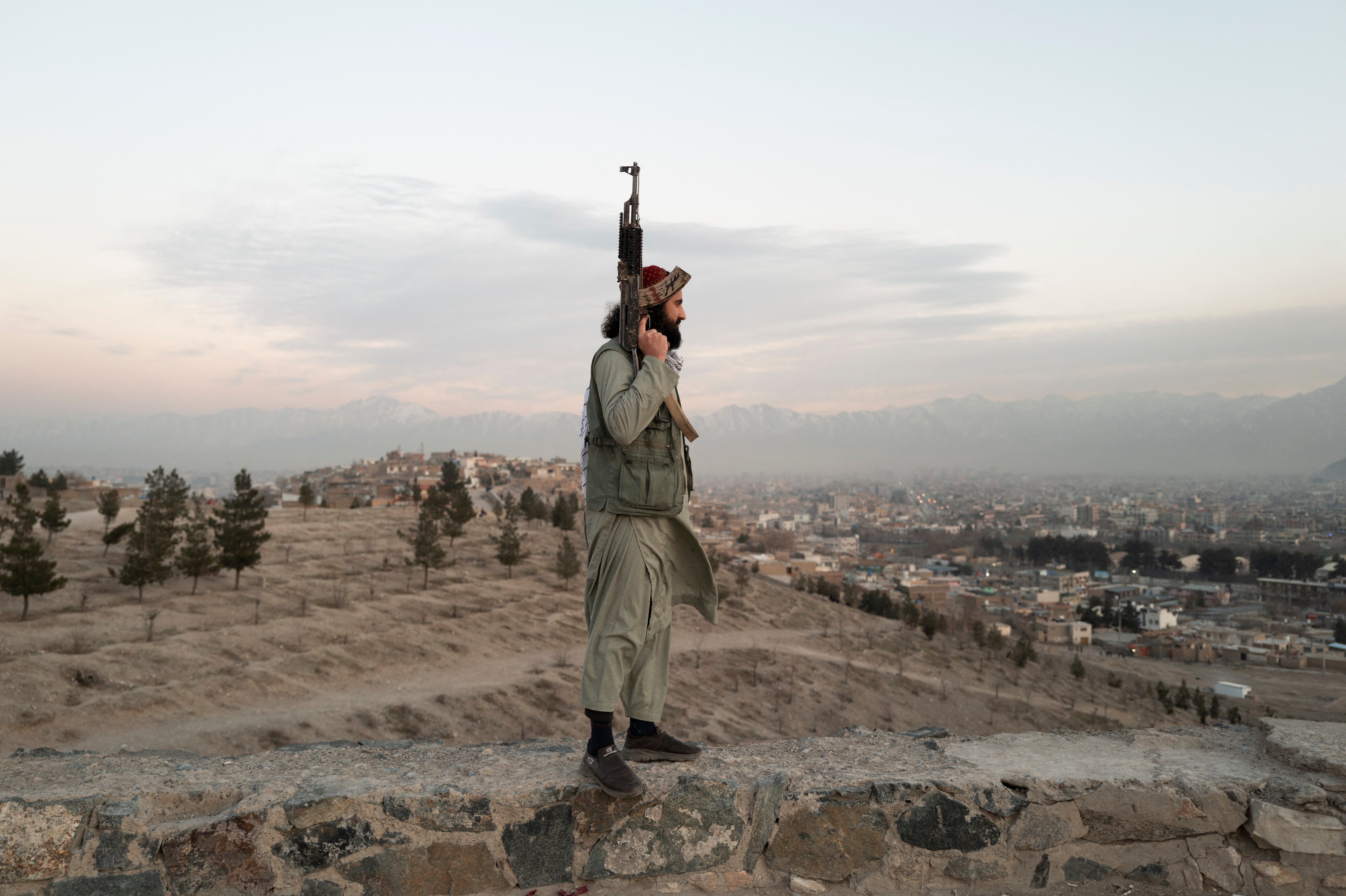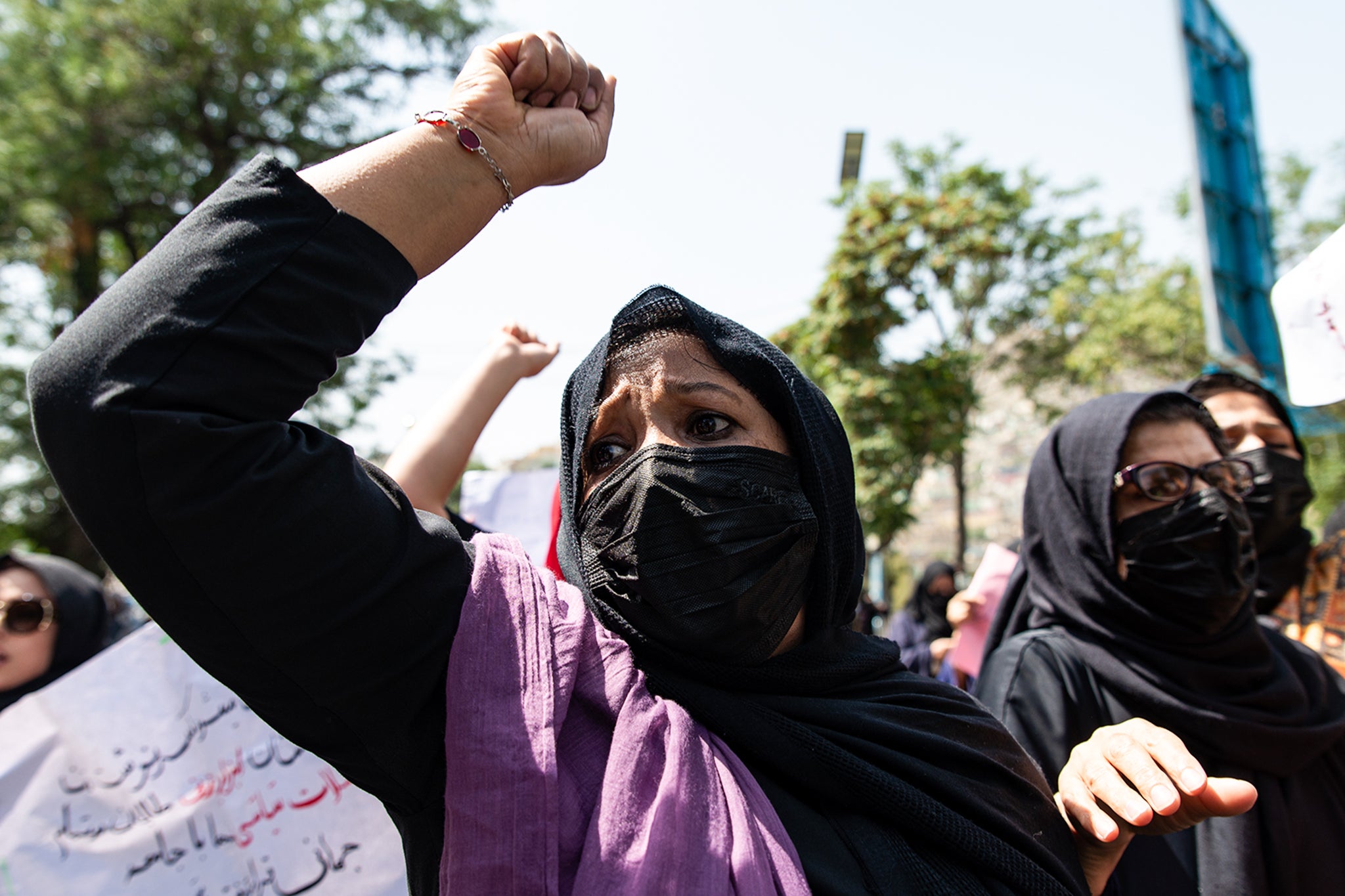The International Criminal Court (ICC) has issued arrest warrants for the Taliban’s supreme leader and the head of Afghanistan’s supreme court on charges of persecuting women and girls since wresting power about four years ago.
The ICC said there were reasonable grounds to believe that supreme leader Hibatullah Akhunzada and chief justice Abdul Hakim Haqqani committed the crime against humanity of persecution on gender grounds against girls and women.
The warrants accused the leaders of persecuting “other persons non-conforming with the Taliban’s policy on gender, gender identity or expression; and on political grounds against persons perceived as ‘allies of girls and women.’”
“While the Taliban have imposed certain rules and prohibitions on the population as a whole, they have specifically targeted girls and women by reason of their gender, depriving them of fundamental rights and freedoms,” the ICC said on Tuesday as it issued a warant on charges of gender persecution for the first time.

The court added that since wresting power in August 2021, the Taliban have “severely deprived” girls and women of the rights to education, privacy and family life, along with freedoms of movement, expression, thought, conscience and religion.
The Taliban have banned education for women and girls beyond sixth grade, most employment, and barred them from many public spaces. Last August, the vice and virtue ministry published laws that ban women’s voices and bare faces outside the home.
However, the Islamist leaders argue that Afghan women have been living in security with their rights protected.
The Taliban condemned the warrants as an example of hostility towards Islam, calling it “nonsense”.
"We neither recognise anything by the name of an international court nor do we consider ourselves bound by it," the Taliban government's spokesperson, Zabihullah Mujahid, added in a statement.
The full warrants and details on the specific incidents they are based on remain under seal to protect witnesses and victims, the court said.
Human rights groups hailed the warrants and called on the international community to back the ICC's work.

"The international community should fully back the ICC in its critical work in Afghanistan and globally, including through concerted efforts to enforce the court’s warrants," Human Rights Watch international justice director Liz Evenson said in a statement.
This week, the UN General Assembly adopted a resolution over US objections calling on Afghanistan’s Taliban rulers to reverse their worsening oppression of women and girls.
The 11-page resolution also emphasises “the importance of creating opportunities for economic recovery, development and prosperity in Afghanistan”, and urges donors to address the country’s dire humanitarian and economic crisis.
The resolution is not legally binding but is seen as a reflection of world opinion. The vote was 116 in favour, with two – the US and close ally Israel – opposed and 12 abstentions, including Russia, China, India, and Iran.
Last week, Russia became the first country to formally recognise the Taliban's government.







